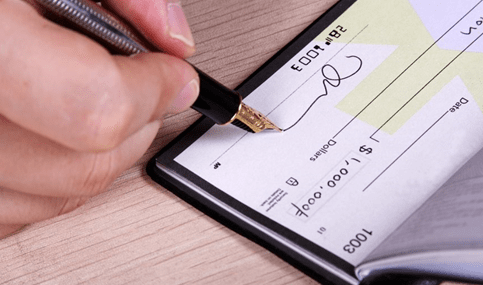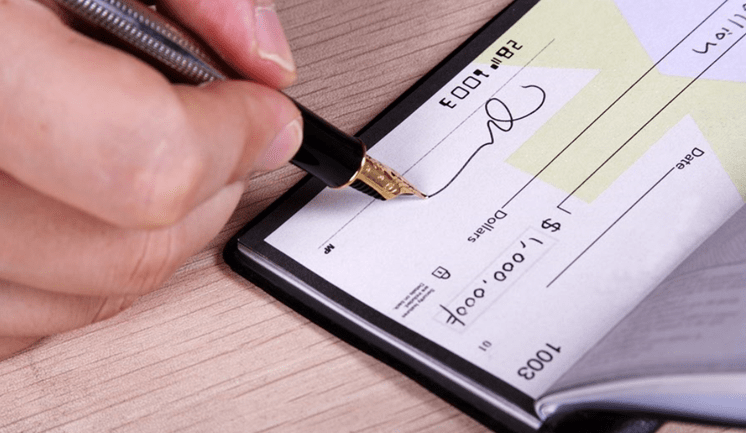Intro: What You Need to Open Business Checking Accounts
Entrepreneurship is one of the economic cornerstones of the developed world. Taking the risk to start your own business and offer some unique product or service to the wider public is what makes our global economy so interesting and diverse.
Nonetheless, starting a business in today’s volatile and uncertain economy can be a risky ordeal.
Finding a banking institution that will help you in the process of opening a business checking account is one of the most important first steps you can take in the life of your new business. In this short article, we will walk you through the steps of how to open a business checking account online as well as help you determine which bank will best be able to assist you in setting up a business bank account.
The Importance of Opening a Business Checking Account
Even if you are the sole proprietor of your small business, it is still best to do everything in your power to keep a healthy separation between your work finances and your personal finances. For this reason, making the decision to open a business bank account online is one of the most important and critical decisions that a small business owner can make.
Having a separate bank account will allow you to clearly differentiate between your personal expenses and business related expenses. You will be able to more clearly follow and keep a record of your daily expenditures and earnings.



Image source: Bigstock
Furthermore, by making the decision to open a business checking account online, you may also be able to save money on taxes. By keeping your personal finances separate from your business finances, you will be able to more clearly classify possible business deductions from the IRS that could save you thousands of dollars. Of course, you will also have to keep your business finances well-documented for filing your taxes, and opening a business checking account will help you do just that.
Another benefit of deciding to open a business checking account online is that it may help you procure business loans from a bank. If you started your own small business with your personal savings, a bank may demand that you open a business bank account online in order to qualify for a loan. Having a separate account will allow the bank to determine the potential profitability of your business venture.
Furthermore, by deciding to open a free business checking account online, you will also be able to keep clear and transparent reports and records for any potential audits. This will also help you limit your personal liability in cases where your business comes under any sort of investigation.
See Also: Top Banks in Georgia | Ranking | Top banks in Atlanta, Savannah, Augusta, and Across Georgi
Which Bank Is Right for My Small Business?
There are a number of factors to consider when choosing which bank is best for setting up a business bank account. If you are planning on taking out a loan to get your small business started, then the bank that offers the small business loan will most likely also offer business checking and banking accounts. Even though you may have had a personal account with a certain bank for many years, you will want to check different options since not all banks offer the same perks and benefits for business accounts.
Most banks have different specialties when it comes to business bank accounts. Some banks specialize in small, local businesses, while others focus on larger corporate entities. Furthermore, if you will be taking out a loan for your business, it’s important to research which banks offer lower interest rates. Some banks may even lower the interest rate on your business loan if you agree to open a business account with them.
One of the most important aspects when setting up a business bank account is to find a bank that won’t charge you a monthly account fee. The early years of starting up a business may not go as smoothly as you wish, so it is also important to find a bank that doesn’t have minimum balance requirements. It is hard enough to manage all the financial stress of starting your own business without also having to worry about hidden costs and fees from your bank.
Nerdwallet.com has a list of banks by state that offer free business checking accounts. This may be a good starting place to find a bank that is best for you. However, with the rise of online banking, you may also choose to open a business checking account online instead of with a local bank.
Don’t Miss: Best Banks in Florida (Ranking & Review)
All-in-One Change Management Tools
Top Rated Toolkit for Change Managers.
Get Your Change Management Tool Today...
The Benefits of Online Banking for Small Businesses
Online banking offers the small business owner a number of benefits that don’t come with banking in person. While starting a business bank account with your local bank will bring with it the benefits of developing personal relationships with bank personnel who can offer their experience and expertise, online banking offers more flexibility, which is very important for small business owners and entrepreneurs.



Image source: Bigstock
By deciding to open a business bank account online, you will have the freedom to transfer funds between your accounts and between different banks. You’ll also be able to pay your business bills online, monitor the different accounts you have, and perform other financial transactions all from the comfort of your office. Since so many small businesses rely on the internet for publicity, advertising, and client outreach, doing your banking online will not only save you time, but it will also help you achieve more financial flexibility that may help your business grow and expand.
Furthermore, if your small business employs an accountant or if you decide to designate someone on your team to control the business finances, opening a business checking account online will allow you to give access to certain people. You can even assign certain security levels so that certain employees have access to only specific banking functions.
Many small business owners complain of having to spend all their time with their noses stuck in account books and thus lose important time to innovate and improve their business ventures. This freedom to delegate financial responsibilities will allow you to dedicate more time to helping your business to grow and improve.
Another perk of deciding to open a business bank account online is that you’ll automatically receive notifications of pending payments and upcoming deadlines. Missing a bill due date will not only cause unwanted fees; it could also hurt the reputation of your business and cause problems with your credit. Online banking will alert you of impending financial obligations. With so many things running through the mind of a small business owner, it is always helpful to have an extra reminder.
With so much news about online fraud you may be asking yourself if online banking is safe. However, the alternative of driving to the bank after your business closes at night to deposit a stack full of bills and checks isn’t exactly the safest option, either. Setting up a business bank account online will allow you to get the money you earn into your account quickly, efficiently, and safely.
Many banks that provide online business bank accounts also offer remote deposit capture services. With this service you can actually scan a check and deposit the funds into your account from the security of your office. Furthermore, almost all banks that offer online services offer firewall and encryption technology that promises to keep your account information safe and private.
Related: Top Banks in Texas (Ranking & Review)
How to Open a Business Account Online
But what do you need to open a business bank account? The documentation you’ll need to present will depend on what type of business you run.
- TIN and SSN
If you are the sole owner and proprietor of your business, then you should only need a tax identification number and a Social Security number. Corporations and other larger businesses, however, will also need to provide their articles of incorporation, a certificate that shows their upright standing with the state and/or federal government, and other important documents. Generally, the larger your business and the more annual income you report will mean that you need to provide more documentation for your business bank account.
- Proof of DBA
Furthermore, if your business is registered in a name other than your own, that is known as “doing business as,” or DBA. If your business is DBA, then you will have to register it accordingly with state and local government officials. Once registered, certain DBA forms will then have to be sent to the bank. Banks will also usually ask for proof of address, especially if you’ve chosen online banking.
- Professional License
If your business offers some professional service, you’ll also most likely need to provide your professional license. For example, if you have started a construction contracting company, you will have to provide your construction and contracting license as issued by the state. If you are going to delegate certain financial and accounting responsibilities to trusted employees, then you will also need to provide a document to the bank that details banking resolutions.
- Expected Cash Flow
Lastly, your bank may also ask for documents that outline your expected cash flow. This will allow your bank to recommend other financial services that you may be eligible for and that may help your business grow. It is important to recognize that certain businesses may not be allowed to do online banking. Federal laws require certain industries to open an account in person. More information regarding which industries can apply for online banking and which must open an account in person can be found at the Small Business Administration website.
Popular Article: BB&T Bank Review | Ranking of Branch Banking & Trust Company



Business Bank Account Requirements for Credit Card Purchases
More and more consumers are voicing their preference for businesses that accept credit and debit cards. Cash and checks are on the way out as plastic is fast becoming the preferred way of making purchases. By deciding to open a business checking account online, you will be able to approve credit card and debit card payments and have the funds deposited directly and electronically into your account without having to deal with checks or cash.
Since many new businesses do their work almost exclusively online, having the ability to receive funds through credit card payments or online providers like PayPal is essential to many small business owners. Furthermore, the movement of freelance workers is exploding. As many people decide to work from home, having an online business account will facilitate many of your business financial needs.
Though most banks do charge certain processing, maintenance, or transaction fees for credit card or debit card purchases, you may be able to apply for discounts if you open a business checking account online with certain online banks. While searching for the best online business bank account, be sure to find out what banks charge for credit card processing and if there are any discounts available. Swiping means more sales for your small business, so you need to make sure you won’t be losing profit through unreasonably high processing and transaction fees.
Read More: BMO Harris Bank Review & Ranking | What You Should Know About BMO Harris
Is Opening a Business Checking Account for Me?
We hope that this article has cleared up any confusion regarding what you need to open a business checking account. Starting up your own business is an exciting yet daunting adventure, and the financial aspects can be confusing and frustrating at times. Making the decision to open a business bank account online will facilitate your banking needs, allowing you to spend less time standing in lines in banks and more time making your business into an important part of your community.
AdvisoryHQ (AHQ) Disclaimer:
Reasonable efforts have been made by AdvisoryHQ to present accurate information, however all info is presented without warranty. Review AdvisoryHQ’s Terms for details. Also review each firm’s site for the most updated data, rates and info.
Note: Firms and products, including the one(s) reviewed above, may be AdvisoryHQ's affiliates. Click to view AdvisoryHQ's advertiser disclosures.





